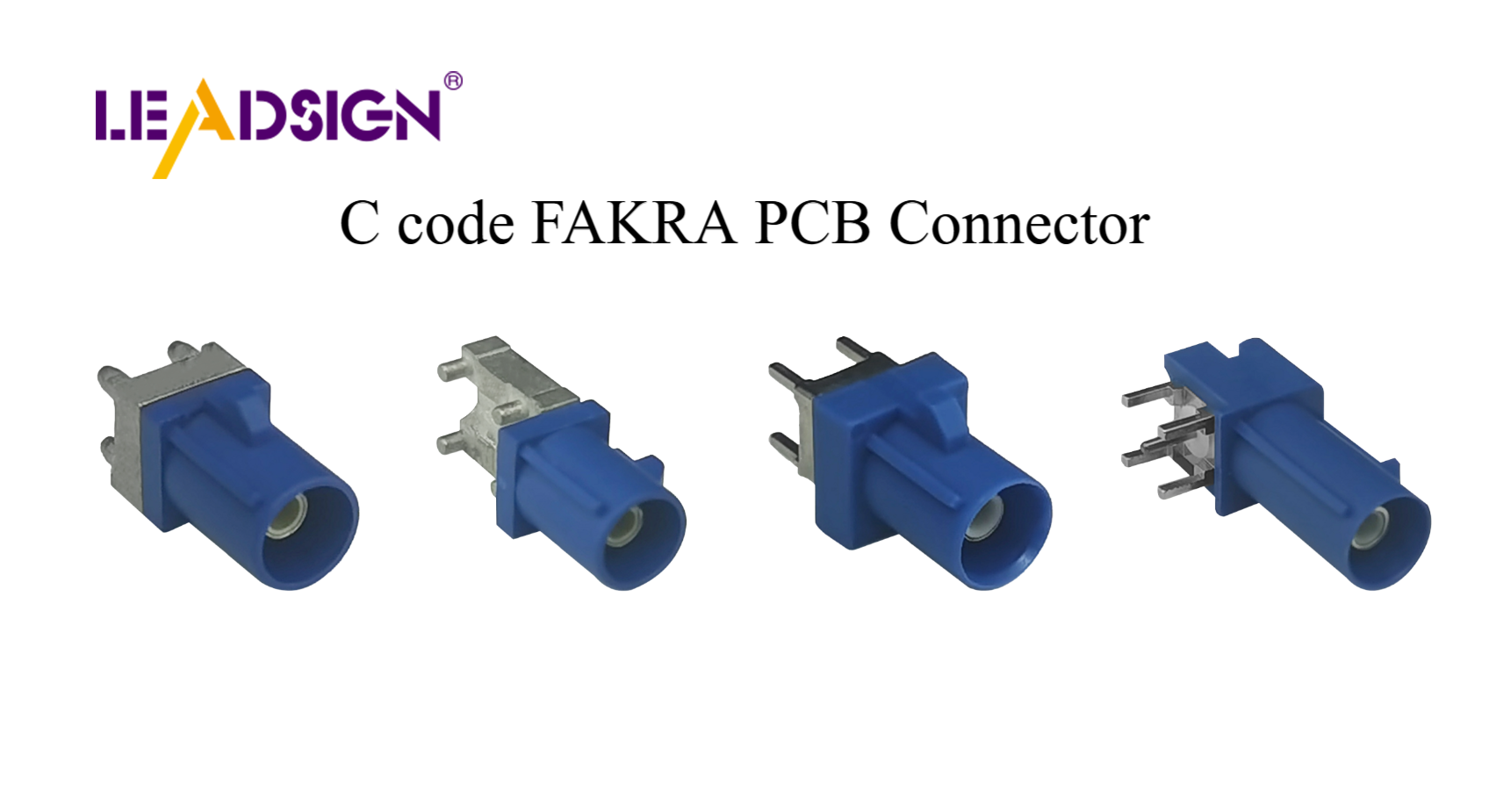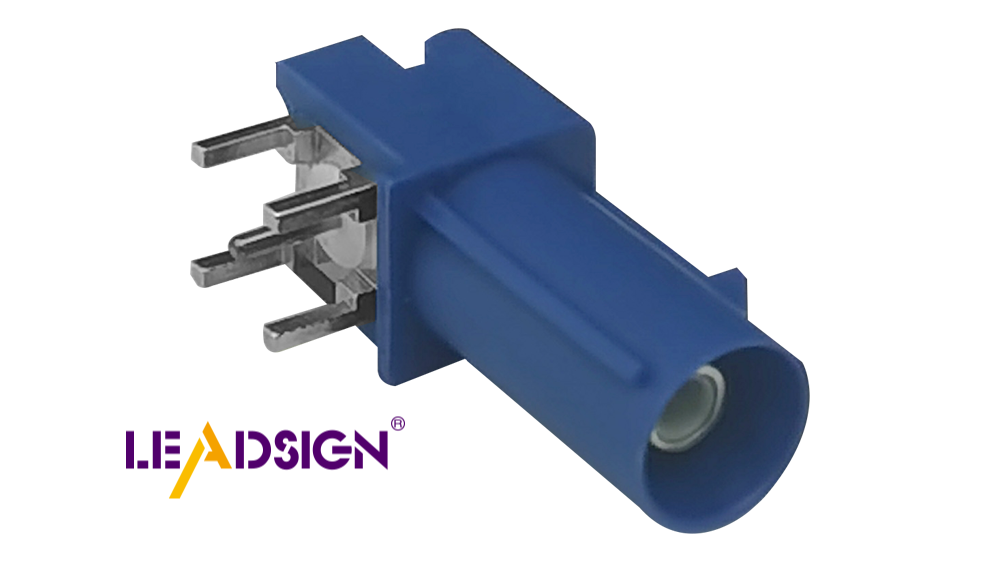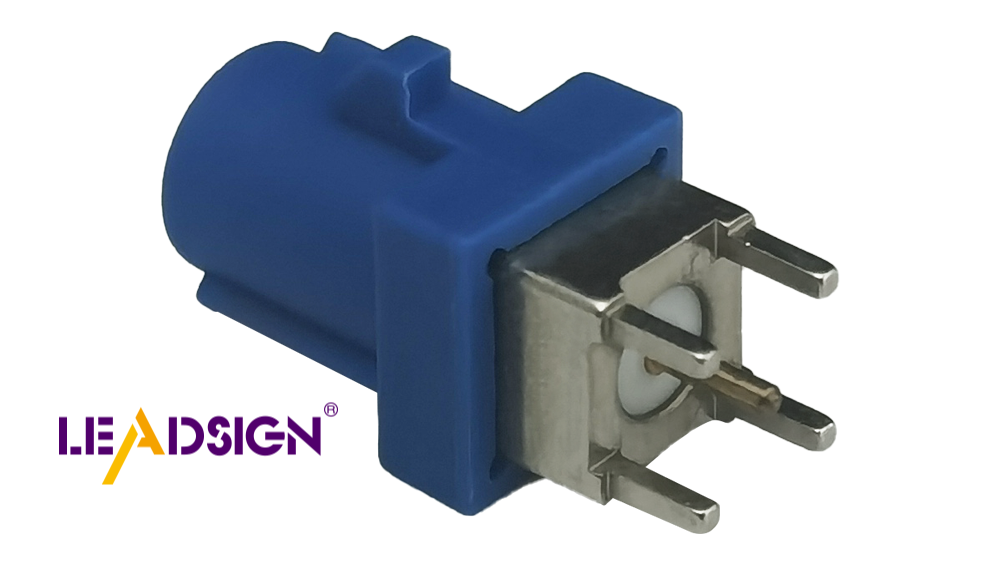The Role of Automotive Plugs and Connectors in Next-Gen Vehicle Systems

Cars today are becoming more advanced with new technology. Vehicle connectors are very important in making this happen. They help different parts of the car work together smoothly. This allows features like driver assistance, electric car functions, and data sharing. As people want smarter and safer cars, good connectors are needed even more. The market for vehicle connectors is growing fast. These changes are shaping how cars will work in the future.
Key Takeaways
Automotive connectors are essential for linking electrical circuits in cars, enabling features like driver assistance and infotainment systems.
Different types of connectors serve specific functions: power connectors supply energy, data connectors transmit information, signal connectors handle sensor signals, and RF connectors support wireless communication.
The demand for smaller, lighter connectors is increasing, as they save space and reduce vehicle weight, benefiting fuel efficiency and electric vehicle design.
High-speed data transfer is crucial for advanced driver assistance systems (ADAS) and infotainment, ensuring smooth operation and enhanced safety.
Eco-friendly materials are becoming a priority in connector manufacturing, helping to reduce environmental impact while maintaining performance.
As vehicles evolve towards smart city integration, connectors must adapt to ensure seamless communication between cars and infrastructure, enhancing safety and efficiency.
The automotive connector market is rapidly growing, driven by the need for smarter, safer vehicles, with innovations focusing on durability, speed, and sustainability.
Understanding Vehicle Connectors
What Are Vehicle Connectors?
Definition and basic functionality
Vehicle connectors are parts that link electrical circuits in cars. They help different systems in the car work well together. These connectors have plugs and sockets that fit to complete a circuit. They move power and data, making modern cars work properly. Without them, features like maps, safety tools, and music systems wouldn’t work.
Types of connectors: power, data, signal, and RF connectors
There are different kinds of vehicle connectors, each with a job:
Power connectors: These give power to things like lights or engines.
Data connectors: These send information for systems like engines or screens.
Signal connectors: These carry small signals for sensors and controls.
RF connectors: These work with GPS, radios, and Bluetooth devices.
Each connector is made for its job to keep cars working well.
Importance in Automotive Applications
Ensuring reliable electrical and data connections
Good connections are needed for cars to work safely and well. Automotive connectors send power and data between parts like engines and sensors. This helps cars do important things like stop and go smoothly. Strong connectors make sure all parts work together without problems.
Supporting the integration of complex vehicle systems
Modern cars have many advanced systems. Things like smart brakes and keyless entry need systems to connect. Vehicle connectors link these systems so they work together. For example, they connect safety and entertainment systems without issues. As cars get smarter, connectors help make driving safer and more fun.
The Role of Connectors in Electric Vehicle Technology and Other Automotive Applications

Advanced Driver Assistance Systems (ADAS)
High-speed data transfer for sensors and cameras
Driver-assistance systems make driving safer and easier. They use sensors and cameras to watch the road. These parts need fast connections to work well. Connectors help send large amounts of data quickly and correctly. Without good connectors, features like lane-keeping and collision alerts wouldn’t work.
New connectors are small and strong for ADAS needs. For example, Hirose Electric Co., Ltd. made the HR41 Series connectors. These are built for fast data transfer in cars. They keep ADAS working even in tough conditions.
Examples: connectors for radar and LiDAR systems
Radar and LiDAR systems are key for ADAS features. They find objects, measure distances, and send important data. Special connectors link these systems to the car’s computer. Sumitomo Electric Industries, Ltd. created the S-LVDS connector series. These support fast data for radar and LiDAR. They help cars process surroundings better, improving safety and performance.
Infotainment and Connectivity
Enabling seamless in-car entertainment and communication
Infotainment systems make driving more fun. You can stream music or use maps easily. Connectors link screens, speakers, and controls so they work together. Fast connectors allow smooth video and audio without delays. They also keep calls and messages clear while driving.
5G and IoT have improved infotainment features. Connectors now support real-time updates and smart home links. RF Bluetooth connectors allow wireless communication with other devices. Smaller, stronger connectors save space and work well in modern cars. As 5G grows, connectors will improve infotainment even more.
Electric Vehicle (EV) Charging
High-power connectors for fast charging
Electric cars need fast charging to be useful. High-power connectors let you charge quickly and safely. These connectors handle large amounts of electricity for efficient charging.
Companies are making better connectors for faster charging. Some work with ultra-fast stations, cutting charging time. These improvements make electric cars easier to use daily.
Safety and durability considerations in EV connector design
Safety is very important for EV connectors. They must handle heat, wear, and prevent electrical problems. Strong materials and secure locks keep them reliable. This is crucial for battery systems that control power flow.
Eco-friendly materials are also being used for connectors. These reduce harm to the environment. By using cars with advanced connectors, you help the planet and enjoy electric driving benefits.
Vehicle-to-Everything (V2X) Communication
Sharing data with roads and other cars
V2X communication helps cars talk to their surroundings. Cars can connect with traffic lights, roads, and other vehicles. This sharing of information makes driving safer and smoother. For example, your car can get warnings about crashes or change speed for traffic lights. These systems need strong connectors to send data quickly and reliably.
New connectors are very important for V2X systems. They send data fast and work in tough conditions. Companies like Hirose Electric Co., Ltd. make small, strong connectors like the HR41 Series. These connectors keep V2X systems working well, even in bad weather.
Examples: connectors for smart cities and V2X systems
Connectors for V2X systems help with smart city features. In smart cities, cars and roads work together to manage traffic better. For example, your car can find parking spots or avoid busy roads. These systems need connectors that are steady and work well.
Sumitomo Electric Industries, Ltd. made the S-LVDS connector series for fast data sharing. These connectors make V2X systems faster and more accurate. They also help with self-driving cars, which need quick communication to make decisions.
As cities get smarter, better connectors will be needed. These connectors will make driving easier and safer while improving transportation systems.
Connector Trends and Innovations in the Automotive Connector Market

The market for car connectors is changing quickly. This is because people want smarter, safer, and better cars. New ideas and designs are shaping how connectors work. These changes aim to improve performance and help the environment. They also meet the needs of modern car systems.
Smaller and Lighter Designs
Saving space and reducing weight
Making connectors smaller is now very important. Tiny connectors save space and make cars lighter. Lighter cars use less fuel and are better for the planet. This is especially helpful for electric and hybrid cars. These cars need more space for batteries and other parts. Small connectors help fit everything without losing features.
Examples: small connectors for advanced car systems
Modern cars use small connectors for systems like ADAS and infotainment. For example, tiny circular connectors fit into tight spaces. They are strong and can handle fast data transfer. Their small size makes them perfect for new car designs.
Faster Data Transfer
Handling data for smart systems
Cars now need to send lots of data quickly. Systems like ADAS and infotainment rely on fast connections. High-speed ethernet connectors help sensors and cameras share data fast. These connectors make sure systems work smoothly and safely.
New ideas for faster connectors
New connector designs solve problems with fast data sharing. For example, some connectors have shields to block signal problems. Others support high-speed ethernet for self-driving cars. These ideas are helping cars become smarter and more connected.
Strong and Durable Designs
Working well in tough conditions
Car connectors must handle tough weather and vibrations. Strong designs keep them working in bad conditions. These connectors are great for off-road and industrial vehicles. They help important systems, like charging and safety, work well.
Materials for stronger connectors
Manufacturers use special materials to make connectors last longer. For example, some connectors have locks and resist rust. These features make them reliable for heavy use. Strong connectors help cars perform well, even in hard situations.
Sustainability and Eco-Friendly Materials
Using recyclable materials to protect the environment
Car connector makers now focus on being eco-friendly. They use recyclable materials to make connectors that create less waste. These materials help lower the environmental impact of vehicles. For example, connectors made from recyclable plastics or metals can be reused later. This helps save resources and reduces trash.
Recyclable materials are still strong and reliable. They keep systems like V2X communication and ADAS working well. As more people want eco-friendly options, car companies are using these materials to meet both quality and green goals.
New ways to make connectors sustainably
Making connectors in eco-friendly ways is now important. Companies use energy-saving methods to cut pollution. Some even use solar or wind power to make connectors. This helps the planet while keeping the products high-quality.
Another idea is to waste less during production. Techniques like 3D printing use materials more carefully. Some companies are also testing biodegradable materials for certain parts. These steps make connectors even better for the environment.
These changes benefit everyone. Eco-friendly connectors help the planet and match the trend for green designs. By using cars with these connectors, you help create a cleaner future.
Future Challenges and Opportunities for Vehicle Connectors
Integration with Smart City Infrastructure
Helping cars connect with smart city systems
Vehicle connectors are key to building smart cities. They let cars talk to things like traffic lights and parking systems. This makes driving easier and reduces traffic jams. It also saves energy and keeps people safer. For example, in V2X systems, connectors help cars share data with roads and other cars. This allows features like smart traffic lights and parking help to work well.
"Connector makers must improve their designs to meet safety needs." – TE Connectivity
Good connectors make driving smoother and safer in connected cities. They also help self-driving cars by sharing important information quickly and reliably.
Problems with making connectors work together
Even with benefits, using connectors in smart cities has issues. Different brands often use different designs. This makes it hard for systems to work together. For example, a connector for one car brand may not fit another brand’s system. This slows down the use of smart city technology.
To fix this, companies need to create shared standards. These will help connectors from different brands work together. Once this happens, cars and city systems can connect easily.
Balancing Performance and Cost
Making strong connectors that don’t cost too much
Cars now need better connectors for advanced features. Things like ADAS and EV charging need fast and powerful connectors. But making these can be expensive. Companies must find ways to make them affordable without losing quality.
New ideas are helping solve this problem. For example, using better materials and faster production methods can lower costs. This means you can enjoy modern car features without spending too much.
New ways to make connectors cheaper
Finding cheaper ways to make connectors is opening new ideas. 3D printing and robots are changing how connectors are built. These methods save money and make products more accurate. Companies are also using eco-friendly materials to protect the planet.
"Connectors must handle heat, vibrations, and moisture to stay reliable."
By using these new methods, companies can make connectors that are both strong and affordable.
Changing Car Designs Need New Connectors
Cars with software-based systems need flexible connectors
Car designs are changing to use more software than hardware. This lets car makers update features without replacing parts. These new designs need connectors that are easy to change and expand.
For example, modular car designs use standard connectors to link parts. This makes fixing or upgrading cars easier for you. Software-based systems also need fast connectors to share data between parts.
What this means for connector designs
As cars change, connectors must also improve. They need to be smaller and stronger to fit tight spaces. They also need to handle fast data for things like self-driving and safety checks.
"More cars now need connectors for high-speed cameras and radars."
These updates make sure your car stays ready for the newest technology. This gives you a safer and better driving experience.
Car plugs and connectors are very important for future vehicles. They are changing how cars work with new ideas like smaller sizes and faster data sharing. The market is also moving toward eco-friendly options for modern cars. As more electric cars are made, better designs and smarter ideas will grow. These changes help electric cars and make driving safer and easier for everyone.
FAQ
What are automotive connectors, and why are they important?
Automotive connectors join electrical circuits in cars. They help systems like sensors, safety tools, and infotainment work together. Without them, features like electric charging or driver assistance wouldn’t work well.
How do connectors enhance vehicle safety?
Connectors make cars safer by helping systems like airbags and lane-keeping work. They send data quickly between sensors and controls. This prevents accidents and makes driving safer.
"Good connectors improve car safety and performance," experts say.
What types of connectors are used in vehicles?
Cars use different connectors for specific jobs:
Power connectors: Give power to lights and engines.
Data connectors: Help systems like maps and screens share information.
Signal connectors: Send signals for sensors and controls.
RF connectors: Work with GPS, Bluetooth, and radios.
Each type is made for its job to keep cars running well.
How are connectors evolving to meet modern vehicle demands?
Cars are becoming smarter and electric. Connectors are now smaller, faster, and stronger. They handle quick data sharing and tough conditions. These changes make cars safer and more connected.
Why is durability important for automotive connectors?
Durable connectors work well in heat, vibrations, and wet conditions. This is important for off-road and heavy-duty vehicles. Strong materials keep connectors working in tough environments.
How do connectors contribute to electric vehicle (EV) technology?
Connectors are key for EVs, especially for charging. High-power connectors allow fast and safe charging. They also protect batteries, making EVs easier to use daily.
What role do connectors play in smart cities and V2X communication?
Connectors help cars share data with roads, traffic lights, and other cars. This improves traffic flow and safety. In smart cities, they support features like parking help and live traffic updates.
Are eco-friendly connectors available in the market?
Yes, some connectors are made with recyclable materials. These are better for the environment. Companies also use energy-saving methods to make greener connectors.
What challenges do connector manufacturers face?
Manufacturers must make connectors that are fast, strong, and affordable. They also need to fix compatibility issues between brands. New designs and teamwork can solve these problems.
How is the automotive connector market expected to grow?
The market for connectors is growing fast. It may reach $9.57 billion by 2030. This growth is due to the demand for safer and smarter cars. Connectors will shape the future of transportation.
See Also
Maximizing Data Flow in Vehicles: Connectors and Cables
Boosting Data Transfer: The Role of Fast Automotive Connectors
Fakra Connectors: Essential Components for Today's Vehicles

